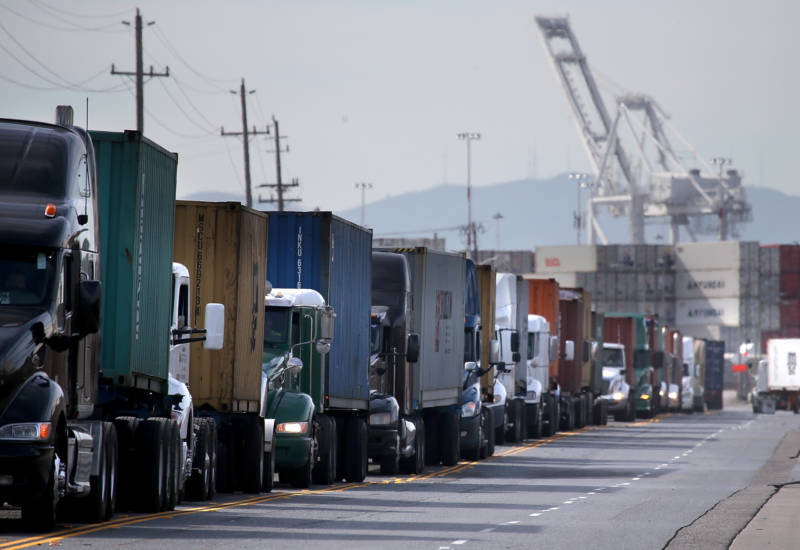After negotiating for two years, federal environmental officials reached a voluntary settlement with the city and Port of Oakland over a discrimination complaint related to West Oakland’s dirty air.
The settlement outlines a series of goals to improve communication between the community, the city and the port. But Oakland and the port did not agree to any new substantive actions to reduce pollution, according to Earthjustice, which filed the complaint on behalf of the West Oakland Environmental Indicators Project. As part of the agreement, the EPA did not find any discrimination, which the city has denied.
Michelle Ghafar, an associate attorney with Earthjustice, said advocates were “disappointed that this is the result of two years’ worth of negotiations. The EPA folks, the D.C. folks, they don’t really know what is happening on the ground here in West Oakland with the state of the air quality and diesel pollution.”
The West Oakland group lodged the complaint with the civil rights offices of the U.S. Environmental Protection Agency and the U.S. Department of Transportation in April 2017. Filed under the Civil Rights Act of 1964, the complaint accused the city and port of a pattern of discrimination in the expansion of freight activity that increased pollution in the majority-black communities who live in West Oakland. Residents in those neighborhoods suffer some of the worst air quality in the Bay Area as well as some of the lowest life expectancies in the city.
The filing prompted the EPA’s External Civil Rights Compliance Office to investigate whether Oakland was doing enough to prevent dangerous smog in the neighborhoods surrounding the port.

